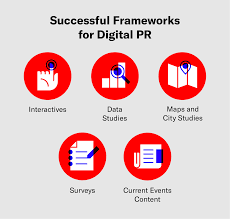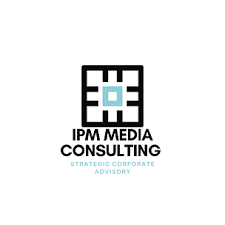Mastering the Art of Digital Media Relations: Building Strong Connections in the Online World
The Power of Digital Media Relations in Today’s Communication Landscape
In the fast-paced world of modern communication, digital media relations have become a vital component of any successful PR strategy. With the rise of social media, online news platforms, and digital influencers, businesses now have unprecedented opportunities to connect with their audiences and shape their brand image.
One of the key benefits of digital media relations is the ability to reach a wide and diverse audience in real-time. Through social media platforms such as Twitter, Facebook, and Instagram, businesses can engage with their followers, share news and updates, and respond to feedback instantaneously. This direct interaction helps build trust and credibility with customers, ultimately strengthening brand loyalty.
Furthermore, digital media relations offer a level playing field for businesses of all sizes. Start-ups and small companies can now compete with industry giants by leveraging the power of social media to amplify their message and reach new audiences. By creating compelling content that resonates with their target market, businesses can increase brand awareness and drive customer engagement.
Another advantage of digital media relations is the ability to track and measure the impact of PR efforts in real-time. Through analytics tools and data insights, businesses can monitor the performance of their digital campaigns, identify trends, and make informed decisions to optimise their communication strategies. This data-driven approach allows businesses to adapt quickly to changing market conditions and stay ahead of the competition.
Overall, digital media relations have revolutionised the way businesses communicate with their audiences. By embracing digital platforms and engaging with customers in meaningful ways, businesses can build strong relationships, enhance brand visibility, and drive business growth in today’s competitive marketplace.
Top 8 Advantages of Digital Media Relations for Modern Businesses
- Instant communication with a global audience
- Cost-effective compared to traditional PR methods
- Ability to target specific demographics and interests
- Real-time feedback and engagement with customers
- Enhanced brand visibility through social media platforms
- Opportunity to create viral content and increase brand awareness
- Measurable results through analytics and data insights
- Level playing field for businesses of all sizes
Challenges in Digital Media Relations: Navigating Information Overload, Negative Feedback, and Other Key Issues
- 1. Information overload
- 2. Negative feedback exposure
- 3. Misinterpretation of messages
- 4. Privacy concerns
- 5. Platform algorithm changes
- 6. Crisis escalation
Instant communication with a global audience
Digital media relations offer the significant advantage of instant communication with a global audience. Through social media platforms and online channels, businesses can reach people across the world in real-time, breaking down geographical barriers and enabling swift dissemination of information. This immediate connection allows businesses to engage with a diverse audience, respond to inquiries promptly, share updates instantly, and address issues efficiently. By leveraging digital media for communication, businesses can amplify their message on a global scale and build strong relationships with customers worldwide.
Cost-effective compared to traditional PR methods
Digital media relations offer a significant advantage in terms of cost-effectiveness when compared to traditional PR methods. With digital platforms, businesses can reach a wide audience at a fraction of the cost of traditional advertising or PR campaigns. By leveraging social media, email marketing, and online content creation, businesses can engage with their target audience effectively without the need for expensive print ads or TV commercials. This affordability makes digital media relations an attractive option for businesses looking to maximise their outreach and impact while staying within budget constraints.
Ability to target specific demographics and interests
In the realm of digital media relations, one significant advantage lies in the ability to target specific demographics and interests with precision. Through data analytics and audience segmentation tools, businesses can tailor their messaging to resonate with distinct groups of individuals based on factors such as age, location, interests, and online behaviour. This targeted approach not only enhances the relevance of communication but also increases the likelihood of engaging with the right audience at the right time. By delivering personalised content that aligns with the preferences and needs of different demographics, businesses can foster deeper connections, drive conversions, and ultimately achieve better results in their digital media campaigns.
Real-time feedback and engagement with customers
One significant advantage of digital media relations is the ability to receive real-time feedback and engage directly with customers. Through social media platforms and online channels, businesses can interact with their audience instantaneously, addressing queries, responding to comments, and acknowledging feedback promptly. This direct engagement not only fosters a sense of connection and trust with customers but also provides valuable insights into their preferences and opinions. By actively participating in conversations and listening to customer feedback in real-time, businesses can adapt their strategies, improve their products or services, and enhance overall customer satisfaction.
Enhanced brand visibility through social media platforms
Enhanced brand visibility through social media platforms is a significant advantage of digital media relations. By leveraging the reach and engagement capabilities of social media platforms such as Facebook, Twitter, and Instagram, businesses can increase their online presence and connect with a broader audience. Through strategic content creation, targeted advertising, and interactive engagement with followers, brands can ensure that their message reaches the right people at the right time. This heightened visibility not only helps in building brand awareness but also fosters brand loyalty as customers become more familiar with the brand’s values, products, and services. Ultimately, enhanced brand visibility through social media platforms can lead to increased customer trust, improved reputation, and ultimately drive business growth.
Opportunity to create viral content and increase brand awareness
In the realm of digital media relations, one significant advantage is the opportunity to create viral content that can rapidly spread across online platforms, leading to a surge in brand awareness. By crafting engaging and shareable content that resonates with the target audience, businesses can tap into the viral nature of social media and reach a vast number of users within a short period. This increased visibility not only boosts brand recognition but also generates buzz around the brand, driving organic growth and establishing a strong presence in the digital landscape.
Measurable results through analytics and data insights
One significant advantage of digital media relations is the ability to achieve measurable results through analytics and data insights. By utilising various tracking tools and metrics, businesses can gain valuable information about the performance of their digital campaigns in real-time. This data-driven approach enables companies to assess the effectiveness of their communication strategies, identify areas for improvement, and make informed decisions to optimise their future efforts. With access to detailed analytics, businesses can track key performance indicators, monitor audience engagement, and measure the impact of their PR initiatives accurately, ultimately leading to more targeted and successful communication outcomes.
Level playing field for businesses of all sizes
Digital media relations have levelled the playing field for businesses of all sizes, offering a unique opportunity for start-ups and small companies to compete with industry giants on a global scale. Through social media platforms and online channels, businesses can showcase their products and services to a vast audience without the need for extensive marketing budgets. This accessibility allows smaller businesses to establish their brand presence, engage with customers directly, and differentiate themselves based on the quality of their content and engagement rather than sheer financial resources. By leveraging digital media relations effectively, businesses of all sizes can now reach new markets, build brand credibility, and drive growth in a competitive digital landscape.
1. Information overload
In the realm of digital media relations, one significant drawback is the issue of information overload. The continuous influx of content on various digital platforms poses a challenge for businesses aiming to stand out and capture audience attention. With users bombarded by a constant stream of information, it becomes increasingly difficult for businesses to break through the noise and convey their message effectively. This saturation of content can lead to messages being overlooked or lost in the sea of online communication, making it essential for businesses to strategise carefully and create compelling, targeted content that resonates with their audience amidst the digital clutter.
2. Negative feedback exposure
In the realm of digital media relations, one significant drawback is the exposure to negative feedback. With the ease of sharing opinions online, customers can voice their complaints publicly, posing a risk to a brand’s reputation if not managed promptly and effectively. Negative feedback on digital platforms can quickly spread and influence others’ perceptions, highlighting the importance of proactive communication strategies to address issues and maintain trust with customers.
3. Misinterpretation of messages
In the realm of digital media relations, one notable drawback is the potential for misinterpretation of messages. The absence of face-to-face interaction can lead to misunderstandings or miscommunication when conveying information through digital channels. Tone, context, and non-verbal cues that are typically present in face-to-face communication may be lost in digital exchanges, increasing the risk of messages being misconstrued. This can result in unintended consequences and challenges in effectively conveying the intended message to the audience. Clear and concise communication strategies are essential to mitigate this con of digital media relations and ensure that messages are accurately understood by recipients.
4. Privacy concerns
Privacy concerns are a significant con associated with digital media relations. Data privacy issues can arise when businesses collect and store customer information for targeted digital media campaigns. In an age where personal data protection is a growing concern, customers may feel uneasy about their information being used for marketing purposes without their explicit consent. This can lead to distrust between businesses and consumers, potentially damaging brand reputation and loyalty. It is crucial for businesses to be transparent about how they collect and use customer data to address these privacy concerns and build trust with their audience.
5. Platform algorithm changes
One significant drawback of digital media relations is the constant evolution of platform algorithms on social media channels. These frequent changes can have a significant impact on businesses’ ability to reach and engage with their target audience effectively. As platforms adjust their algorithms, the reach and visibility of businesses’ content may fluctuate, making it challenging to maintain consistent engagement levels and achieve desired outcomes. This unpredictability necessitates businesses to continuously adapt their strategies to navigate algorithm changes and ensure their content remains visible to their audience amidst evolving digital landscapes.
6. Crisis escalation
In the realm of digital media relations, one significant drawback is the potential for crisis escalation. When a PR crisis occurs, negative news can quickly spread across various online platforms, creating a challenging situation for businesses to control the narrative and mitigate reputational damage. The rapid dissemination of information on digital media can amplify the impact of a crisis, making it crucial for businesses to respond swiftly and effectively to address the situation before it escalates further. Failure to manage a crisis promptly in the digital space can lead to long-lasting reputational harm and loss of consumer trust.




